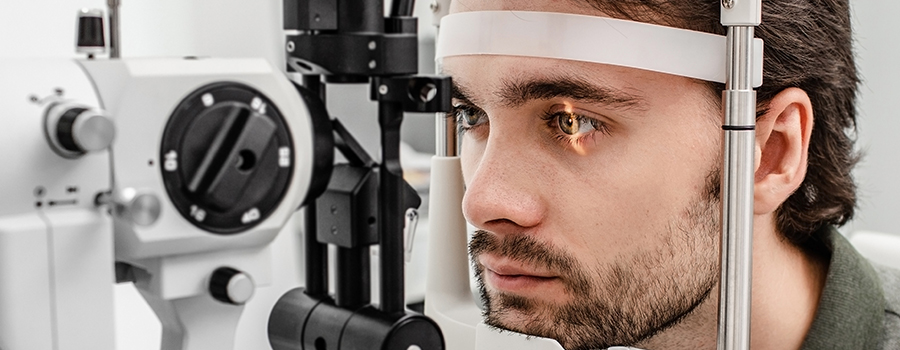
Comprehensive Eye Examination
To ensure your general eye health is in good form, we advise getting an annual eye exam because your eyes are constantly changing. Yearly eye exams check your vision and, more importantly, help detect eye health issues. To provide you with the kind of care you need, Wayne Smith Optometrists will take the time to ask you the necessary questions.
Why are regular eye examinations necessary?
An annual eye checkup is crucial, yet many individuals are unaware of this. Unfortunately, perfect vision (20/20) does not always imply that your eyes are in excellent condition. Serious eye conditions frequently have no symptoms at all.
Regular eye exams by an eye doctor can help identify issues early and avoid problems. An annual eye exam can help you recognise and prevent common eye conditions such as:
- Glaucoma: A condition in which the pressure inside your eyes increases. If not treated, glaucoma can damage the optic nerve, causing tunnel vision and pain. Early detection is key to minimising eye damage. Symptoms will vary, but many people will not experience any pain or symptoms until vision loss has occurred.
- Cataracts: A medical condition where the eye’s lens becomes cloudy over time. Cataracts are one of the most common causes of vision loss. Luckily, vision loss caused by cataracts can be treated. If you require a specialist for treatment, we will provide a referral.
- Diabetic Eye Disease: A diabetes complication that damages the blood vessels in the retina. People with diabetic retinopathy may not experience any symptoms until vision loss occurs. This is the leading cause of blindness in adults. Permanent vision loss may occur if untreated.
At Wayne Smith Optometrists, our optometrist can administer a series of tests to help detect early signs of these conditions. However, don’t wait until symptoms begin appearing to visit your eye doctor. The secret to maintaining healthy eyes and excellent vision is early prevention.
What are some signs that I should schedule an eye exam?
You should schedule an appointment with our optometrist right away if you frequently experience any of the following eye issues:
- Decreased vision
- Redness of the eye
- Excessive/constant watering of eyes
- Eye pain
- Double or blurry vision
- Specks appear to float in front of your eyes
- Circles or halos around lights
- Computer eye strain
While some symptoms may result from exhaustion or fatigue, others could indicate a more serious eye condition. Therefore, if issues like blurred vision persist, it is recommended that you come in for diagnosis and treatment.
What tests will be performed during my eye examination?
The specific tests you undergo during your visit will depend on your particular symptoms and our expert assessment. Several tests may be part of an in-depth eye and vision check-up, including:
- Visual acuity: the Snellen chart is used to identify the smallest letters you can read.
- Keratometry: evaluates the cornea's curvature to look for any indications of astigmatism.
- Cover test: determines whether one eye works harder than the other by looking at eye movement and perception.
- Ocular movement testing: measures eye movement in reaction to images, light, and other triggers.
- Refraction: determines a person's contact lens or eyeglass prescription.
- Colour blindness: consists of screening exams to identify any colour vision deficiencies.
- Cornea measurements: measures the curvature of the front of the eye to determine the correct curve and size of the contact lens.
- Pupil measurements: the pupil will be measured to determine the proper size of the contact lenses you require.
- Tear film evaluation: to ensure that the eyes are not overly dry for contact lenses, a tear film evaluation test may be given. This may be done using a fluorescein dye on the eye.
- Evaluation of the eye surface: your optometrist will use a slit lamp to get a highly magnified view of the cornea and other tissues to ensure that wearing contact lenses hasn't impacted your eyes' health.
How long does an eye exam take?
The average length of an eye exam is 30 to 45 minutes. It's crucial to remember that time will vary based on the kinds of tests that must be performed. To ensure you have the proper lens prescription, your optometrist will need to conduct a contact lens fitting if you're interested in wearing contacts.
Learn more about our contact lens consultations.
Schedule your eye examination with Wayne Smith today.
Contact UsSend us a message
Fill in the form below and we will get back to you as soon as we can.
